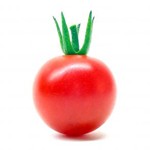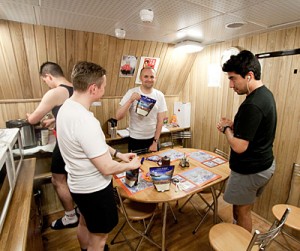How could she be on my schedule again? I had just seen her the day before, diagnosed her with an infection of the skin, placed her on a few medications, and told her to follow up only if the infection worsened. Was her arm now being consumed by the bacteria, or had she returned simply to tell me of a new problem? Perhaps she felt I had rushed her out of the examining room yesterday. It was hard to look at her directly, I admit. It took all the compassion and intellectual power I could muster to see beyond her terribly scarred face to the lovely woman at the seat of her brain.
“How are you today?” I asked. “What brings you back so soon? You must really like it here,” I cringed at my own clichéd banter.
“I’m so sorry. I’m just a lonely old lady with too many problems,” she said out of the corner of her mouth, the side that was still tethered to functioning muscles. The other half of her face had been shattered by an automobile accident years ago. Despite many surgeries she still looked puttogether by surrealist hands.
“You’re not old,” I reminded her. “And I hope you’re not truly lonely.” She was only a little beyond midlife, and her hair was still silky and black as it fell unevenly from her patchwork hairline. “How have you have been since yesterday?”
She ran her fingers over the swollen infection on her arm. “It hurts, but I think it’s getting better.” She looked up with her one good eye as the other drifted aimlessly in its wet socket. The tunnel between the eye and the nose which normally drains tears had long since collapsed. Her face appeared to be perpetually crying on that side, despite the small smiles that would escape the other.
I rolled my chair closer to her. Her wounds were indeed healing, and I couldn’t imagine why she had come in. “Looks good I have to say.”
“You don’t think it’s still infected?”
“Yes, it is still. But it’s getting better.”
“Why did this happen to me?” she asked.
I looked away from her rutted face and pondered the question. “This” could signify the festering wound upon the skin of her infected forearm, or it could reach back to the accident that had buckled her facial bones. I didn’t answer why either had befallen her. I didn’t know. I was pretty sure the question was as flawed and absurd as existence.
She brought up several more problems to flesh out a respectable visit, but they were all minor complaints, ones that had troubled her for years and were more or less stable. I reassured her about prior CT scans, blood tests, physical exams, and specialists’ consultations. She didn’t seem satisfied. I concluded the visit and walked her out to the front desk to check out. I stooped over the counter and finished her note while she waited for something.
“Are you all set?” I asked her.
She nodded while wiping the spittle from the slack corner of her mouth with a handkerchief. I noticed that she had painted her lips a vibrant red. “Aren’t those flowers nice!” she remarked, pointing at an old wilted bouquet of roses that another patient had brought in as a gift for the office.
“Why don’t you take them,” I said. “They’ll look nice in your house.”
“No, I couldn’t possibly,” she replied. Her good eye looked at them again. “Those are for your office.”
“That’s it, you must take them,” I said, handing her the vase and the lovely roses. The petals were blood red, and although wilted their vibrant color was still extraordinary.
Her appearance brightened and she seemed exceptionally moved by the token of friendship I had passed on to her. She had no choice but to accept it, and while she feigned modesty and refusal it was obvious that she was thrilled. How long had it been since she had been given flowers?
“They’re beautiful,” she said. She pulled my face to hers so that she could give me a kiss on the cheek. I watched her leave. In the parking lot she opened the back door of her perfect new car just as the first drops of a summer rain began to fall. She carefully positioned the flowers among a few boxes so they wouldn’t tip over on her way home. Then she nimbly raced to the front door and slid in behind the wheel. A smile lingered on her broken face, and as she backed the car away and drove off through the rain I knew that she wouldn’t need to come in tomorrow.


 Announcing the first annual 2010 Charles Prize for Poetry. Bold and pretentious name aside, the award will be given to the writer who submits for consideration the most outstanding poem within the context of health, science, or medicine.
Announcing the first annual 2010 Charles Prize for Poetry. Bold and pretentious name aside, the award will be given to the writer who submits for consideration the most outstanding poem within the context of health, science, or medicine.

